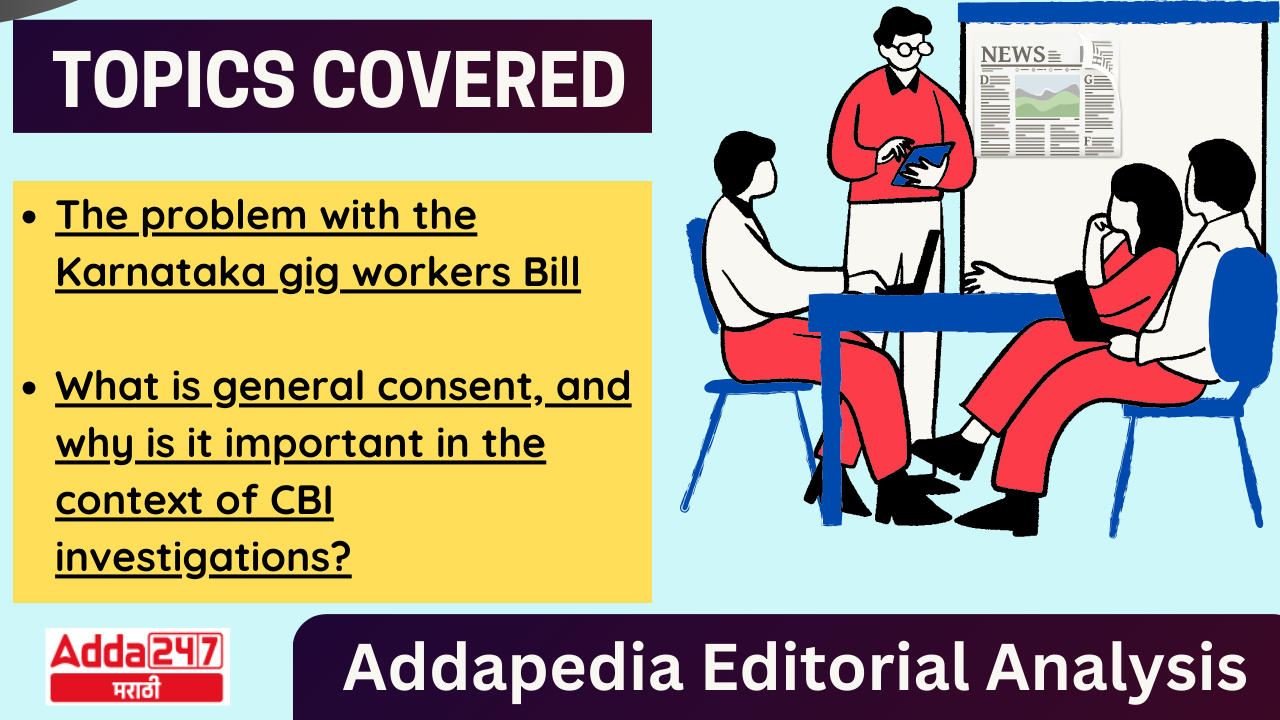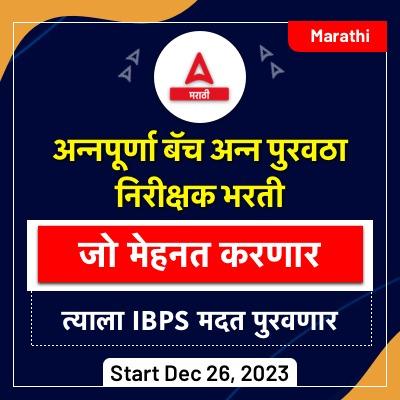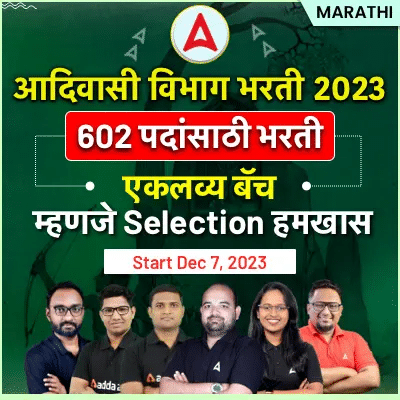Table of Contents
Date: 15 July 2024
The problem with the Karnataka gig workers Bill
(The Hindu, 15-07-24)
Karnataka introduced the draft Karnataka Platform-based Gig Workers (Social Security and Welfare) Bill, 2024.Rajasthan enacted similar legislation in 2023. Both are based on a welfare board model
However, these laws don’t address employment relations, focusing instead on welfare measures
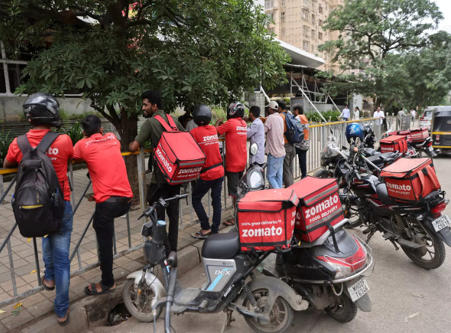
What is Gig Work and what are its key features?
Gig work refers to a type of employment arrangement where individuals work on short-term contracts or freelance jobs, often through digital platforms or apps, rather than in permanent, full-time positions. Here are the key features of gig work:
- Flexibility: Workers can often choose their own hours and work schedules. Ability to work for multiple employers or platforms simultaneously
- Short-term nature: Jobs are typically task-based or project-based. No long-term commitment between worker and employer
- Platform-mediated: Often facilitated through digital platforms or mobile apps. Examples include ride-sharing apps, food delivery services, freelance marketplaces
- Independent contractor status: Workers are generally classified as independent contractors, not employees. This classification often means lack of traditional employment benefits
- Performance-based pay: Income is usually tied to completed tasks rather than fixed salaries. May involve surge pricing or demand-based compensation
- Use of personal assets: Workers often use their own vehicles, equipment, or tools
- Algorithm-driven management: Work allocation, performance evaluation, and sometimes pay rates are determined by algorithms
- Low barriers to entry: Often requires minimal qualifications or experience to start
What are the key issues surrounding gig work in India?
- Gig workforce projected to expand to 23.5 million workers by 2030 (NITI Aayog)
- Protests and agitations by gig workers over revenue sharing, working hours, and working conditions
- Ambiguity in employment relations in the gig economy
- Lack of minimum wage guarantees and regulation of working hours
- Difficulty in solving these issues within existing legal frameworks
How do these new laws approach the employment status of gig workers?
- Both Karnataka and Rajasthan laws avoid defining employment relations in gig work
- They use the term ‘aggregator’ for app companies rather than ’employer’
- This approach doesn’t allow for application of protective labor laws
- Contrasts with UK Supreme Court ruling that classified Uber as an employer
- Gig workers are included in Code on Social Security 2020 as informal self-employed workers, but not in other labor codes
What are the limitations of the welfare board model adopted by these laws?
- Doesn’t address core issues of employment relations
- Fails to provide institutional social security benefits like provident fund, gratuity, or maternity benefits
- Historical poor implementation of welfare board models in India
- Karnataka Bill doesn’t address minimum wages or working hours for gig workers
- Doesn’t guarantee minimum income or specify revenue sharing between aggregators and workers
Can you answer the following question?
The recent legislative initiatives for gig workers in India adopts welfare board model to protect the interests of gig workers. Critically analyse if such a model will balance the interests of workers and the employers.
A On the jurisdiction of the CBI
(The Hindu, 15-07-24)
The Supreme Court upheld the maintainability of West Bengal’s suit accusing the Union government of “constitutional overreach”. The suit challenges CBI’s registration and investigation of cases despite withdrawal of general consent in 2018. The Court rejected the Centre’s argument that CBI is an “independent agency”
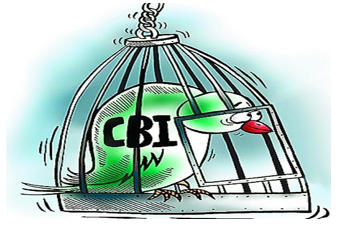
What is general consent, and why is it important in the context of CBI investigations?
- General consent is permission given by states to CBI under Section 6 of the DSPE Act
- It’s required for CBI to investigate cases within a state’s jurisdiction
- Necessary because “police” and “public order” are state subjects under the Constitution
- Several states have revoked general consent, alleging misuse of CBI by the Centre
- Without general consent, CBI needs explicit permission for each case in these states
What are the key arguments presented by the Union government and West Bengal in this case?
Union government’s arguments:
- CBI is an “independent agency” not under direct control of the Union government
- CBI cannot be made a defendant as it’s not a ‘State’ under Article 131
West Bengal’s arguments:
- CBI’s actions infringe upon state sovereignty
- CBI registered 12 new cases despite withdrawal of general consent
- This constitutes “constitutional overreach”
What are the potential implications of this case?
- The final ruling could significantly impact Centre-State relations
- It may affect the CBI’s ability to investigate in states that have revoked general consent
- Could set a precedent for other similar pending cases
- May influence the balance of power between central agencies and state police forces
- Could lead to judicial oversight over criminal cases between central agencies and state police in opposition-ruled states
Can you answer the following question?
In recent years, several state governments are withdrawing general consent to Central Bureau of Investigation (CBI) on charges of biasedness. Examine the implications of such withdrawal on centre-state relations and on the functioning of CBI.
मासिक चालू घडामोडींवर महत्त्वपूर्ण वनलायनर प्रश्न-उत्तरे PDF – जून 2024
महाराष्ट्रातील सर्व स्पर्धा परीक्षांसाठी ऑनलाईन क्लास, व्हिडिओ कोर्स, टेस्ट सिरीज, पुस्तके आणि इतर अभ्यास साहित्य खाली दिलेल्या लिंक वर क्लिक करून मिळावा.
अड्डा 247 मराठीचे युट्युब चॅनल
अड्डा 247 मराठी अँप | अड्डा 247 मराठी टेलिग्राम ग्रुप
महाराष्ट्र महापॅक

